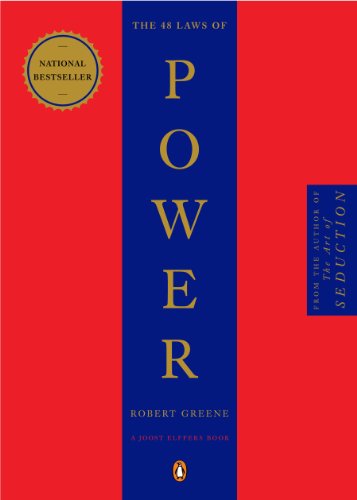

This article is an excerpt from the Shortform summary of "The 48 Laws of Power" by Robert Greene. Shortform has the world's best summaries of books you should be reading.
Like this article? Sign up for a free trial here .
Overview of Law #6: Create an Air of Mystery
We judge everyone and everything by appearances; what we can’t see doesn’t count. Make sure you stand out from the crowd. Create an air of mystery. Portray yourself as larger, more mysterious, and more exciting than anyone around you.
Principle #1 of Law 6: Be Scandalous
The first sub-law of Law 6: Create an Air of Mystery, is to be scandalous. Attract attention by being controversial and outrageous. Welcome scandal. Don’t differentiate between positive and negative attention — it all enhances your power.
Attracting attention doesn’t come naturally to many people. You have to learn how to do it. Start by associating your name and reputation with something that makes you stand out from others. It could be a clothing style, hair style, mannerism, or quirk that gets you noticed and talked about. This will help you create an air of mystery.
It doesn’t matter whether your image or appearance is controversial — any kind of attention is good. P.T. Barnum welcomed attacks and didn’t bother defending himself. He cultivated an image as a huckster.
Society relishes those who are larger than life, who stand out from the crowd. So don’t hesitate to adopt qualities that draw attention. It’s better to be controversial and be attacked than ignored. No matter what your profession is, you’ll benefit from being a showman.
For example, Thomas Edison sought attention by making a big display when introducing an invention. Besides staging exciting exhibits with electricity, he gave fantastical talks about future inventions, such as machines that could photograph people’s thoughts. He ensured that he got more attention than his rival Nikola Tesla, who may have been smarter but was less famous.
If you’re stuck in a position with little visibility, you can get attention by attacking someone more famous or powerful than you. For instance, a young Roman servant drew attention to his poetry when he wrote a series of poems mocking the pope. Your attack could even be slanderous. Just ease off when you get the public’s attention because such attacks can get old fast.
Once you’ve grabbed the spotlight, you have to keep changing your methods or people will take you for granted and stop paying attention to you, or be distracted by someone new. You will stop creating an air of mystery. This requires creativity.
- For example, the artist Pablo Picasso kept himself in the public eye by defying expectations. When people began associating his work with particular styles, he switched to a completely different style. People like to be able to predict what others will do, which makes them feel superior. By defying expectations, you hold their attention and gain respect.
Putting Law 6 to Work
Let’s see how some successful people have created an air of mystery using Law 6 of the 48 Laws of Power. P.T. Barnum learned a lesson about the value of notoriety when his first boss, who operated a circus, had him wear a black suit and stroll through town before the performance. People mistook Barnum for an infamous reverend recently acquitted of murder and soon formed a mob around Barnum and started attacking him. To prove who he was Barnum finally convinced the mob to follow him to the circus. Barnum’s boss revealed that he’d set Barnum up, and the circus was packed that night, with everyone talking about the joke.
Over the years Barnum used similar schemes, starting rumors about his performers being fraudulent to draw audiences to his events. He also understood how doing something unusual or interesting drew people’s attention. To get people to visit his museum, he paid a man to walk up and down the streets and through the museum, randomly setting down and picking up bricks. People followed the man into the museum to see what he was doing.
When trying to generate attention for the first time, welcome negative attention. P.T. Barnum wrote letters to newspapers attacking his own work to keep his name in the public eye. Attention, good or bad, was the secret of his success. Barnum knew how to create an air of mystery.
Principle #2 of Law 6: Be Mysterious
The second sub-law of Law 6: Create an air of mystery is to add the mystery element to the element of scandal. People are attracted to those who seem mysterious, so cultivate an air of mystery. Be vague about what you’re doing or plan to do. Don’t show all your cards and you’ll create an atmosphere of anticipation — people will pay attention to see what you do next. Use mystery to deceive, enthrall, and intimidate.
In ancient times, when the world seemed frightening and inexplicable, people invented gods and myths to explain diseases, natural wonders, disasters, and other things they couldn’t understand. Today, we explain natural phenomena with science and reason, but people still crave the inexplicable and mysterious. People gravitate to enigmas. They have drawing power because they’re open to interpretation, imagination, and awe, unlike our mostly familiar and predictable world.
You can attract attention the same way, by being inscrutable. You don’t need to be extraordinary to create a sense of mystery about yourself — you can succeed while being more subtle, making mystery part of your mien.
By practicing silence and restraint, making occasional ambiguous remarks, being purposely inconsistent, and appearing eccentric, you’ll create an air of mystery, which others will build up by trying to interpret what you say and do.
Con artists attract people by seeming mysterious, then distract them while fleecing them. For example, a stylish swindler, Victor Lustig, pretended to be a count; he dressed expensively, but always wore an odd accessory. He hung around hotels acting in ways that got people buzzing. He was so interesting and distracting that people who got close to him didn’t notice they were being robbed.
Some benefits of creating an air of mystery include:
- An element of mystery can make you appear brilliant and profound, even if you’re average or mediocre. For example, Mata Hari, the famed dancer, wasn’t a great beauty or an extraordinary dancer, but she enthralled her audiences because she seemed exotic and kept changing her background story.
- You have the upper hand when you force others to try and figure you out. It puts them on the defensive.
- You can inspire fear because people are unnerved by uncertainty and things they don’t understand.
- Mystery draws attention and gives you an intimidating presence as a leader. Example: Mao Tse-tung mystified everyone, including his wife, by being unpredictable and contradicting himself. People felt they had to pay attention because no one knew what he might do next.
If you can’t be mysterious all the time, create enigmas. Do something periodically that doesn’t jibe with others’ perceptions and expectations of you, to keep them on edge and focused on you.
Putting Law 6 to Work, Example #1
Here’s an example of how to apply Law 6 of the 48 Laws of Power. Hannibal famously created an air of mystery that enabled his army was to escape a trap. Hannibal’s army had become boxed in between some swampland, the sea, and the mountains, which the Romans occupied.
One night, as Roman sentries looked down, they saw thousands of lights heading toward them, which they thought were reinforcements. Soon fire and noise broke out below and the sentries fled. The next day they saw that Hannibal had escaped.
He had created the puzzle of lights and noise by tying torches to the oxen carrying his supplies. The animals soon stampeded, making noise and setting fires everywhere. As Hannibal demonstrated, when you find yourself in a tight spot, if you do something that can’t be readily understood or explained, you’ll provoke fear and confusion.
Putting Law 6 to Work, Example #2
In the early 1900s, a young dancer Mata Hari became a sensation in Europe. She claimed to be from the Far East and danced while wrapped in veils that she periodically removed. She varied her music (Hindu, Javanese) and changed the colors of her outfits. She told different stories about her background and the origin of her dances.
She succeeded as a dancer, not because of beauty or skill, but because of the mystery she created with her stories, music, and costumes, which she continually changed. People didn’t know what to expect. Their fascination made her wealthy and powerful, at least for a time. She created an air of mystery.
Eventually her reputation for deception caught up with her — near the end of World War I, she was falsely accused and eventually executed as a spy. During the trial it was revealed that her name was Margaretha Zelle and she was Dutch.
Exceptions to Law 6
Are there any exceptions to 48 Laws of Power Law 6: Create an air of mystery? Although you want to attract as much attention as possible, you need to evolve your tactics as you succeed so you don’t bore the public. Also, don’t build your sense of mystery to the point where it seems threatening; it should seem like a game.
Occasionally, you need to restrain your attention-seeking impulses in order to avoid competing with superiors (for instance, when you’re in the presence of royalty). Knowing when to seek versus avoid the spotlight is an art.
Lola Montez, a mistress and adviser to the king of Bavaria, went too far when she broke custom by entering the theater lavishly dressed and taking her seat later than the queen did. After that, no one wanted to be seen with her and she was ignored. Appearing to crave attention too desperately is a sign of insecurity, which undercuts power.
But in general, follow Law 6: Create an air of mystery.
———End of Preview———

Like what you just read? Read the rest of the world's best summary of "The 48 Laws of Power" at Shortform . Learn the book's critical concepts in 20 minutes or less .
Here's what you'll find in our full The 48 Laws of Power summary :
- Why you should never outshine your boss
- How to appear like a friend but behave like a spy
- The 6 rules you absolutely must not violate, if you want to be successful






